5 years on: How the BBC iPlayer sparked a TV revolution
Happy Birthday BBC iPlayer, launched on Christmas Day 2007
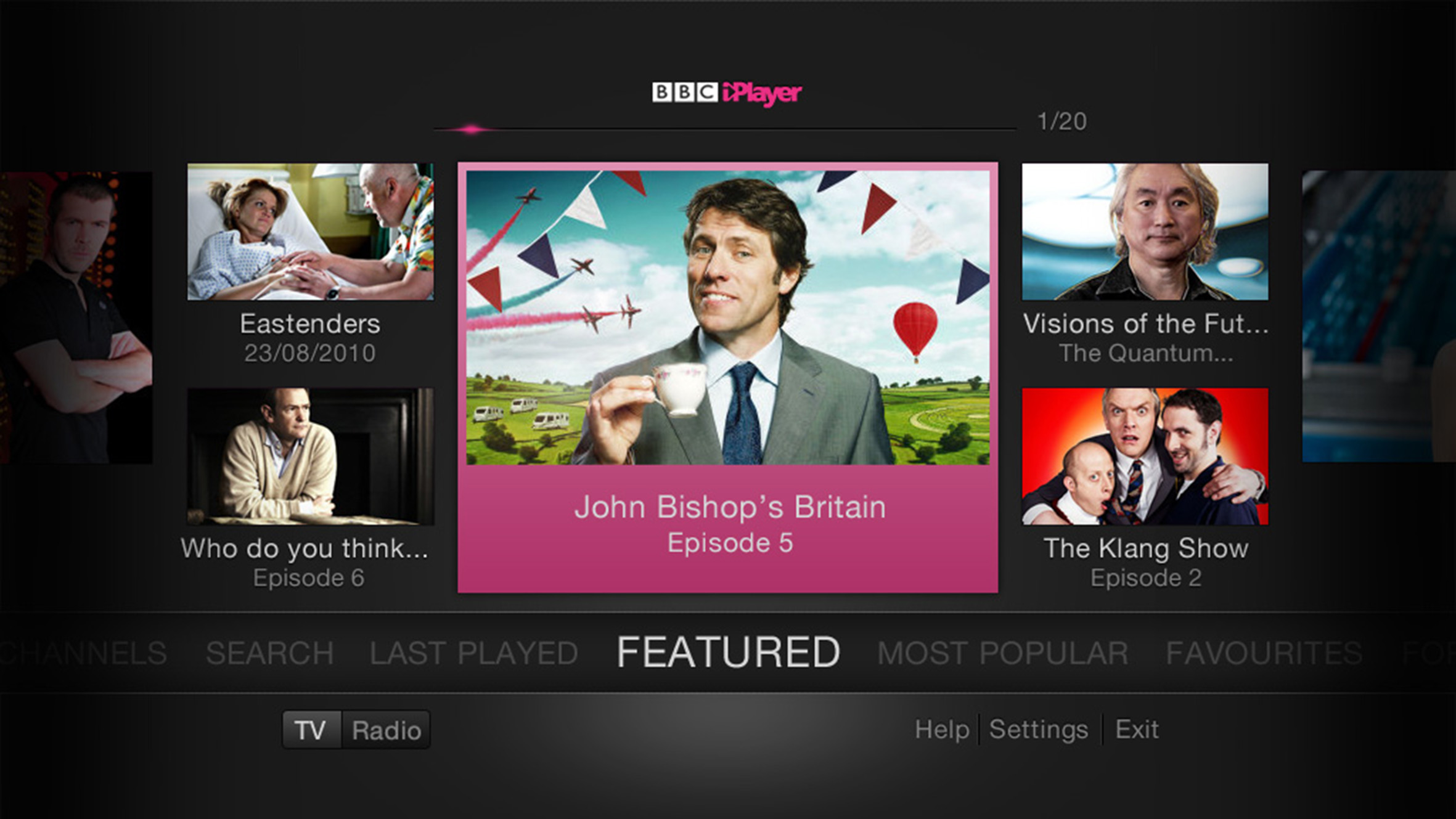
Sign up for breaking news, reviews, opinion, top tech deals, and more.
You are now subscribed
Your newsletter sign-up was successful
Something amazing happened on Christmas Day 2007, and we don't mean Santa getting stuck in the chimney or Gran overdoing the sherry: the BBC launched iPlayer, its on-demand internet video service.
As LoveFilm's Simon Morris recalls, iPlayer changed the game: "They normalised the idea of catch-up TV," he said. "The service went a long way to explaining to middle England that streaming content was normal."
iPlayer was a hit from the very start, shifting 3.5 million programme streams and downloads in its first three weeks, and by April 2008 it accounted for one fifth of all UK internet traffic. By early 2012, 40% of online adults were using it.
Remember the launch ad?
iPlayer thrived for several reasons. One, it did something useful. Two, it did it very well. Three, it's constantly being improved - for example, it got a dramatic, social media-inspired makeover in 2010 and added links to other broadcasters' programmes in 2011. And four, it's constantly finding new devices to play programmes on.
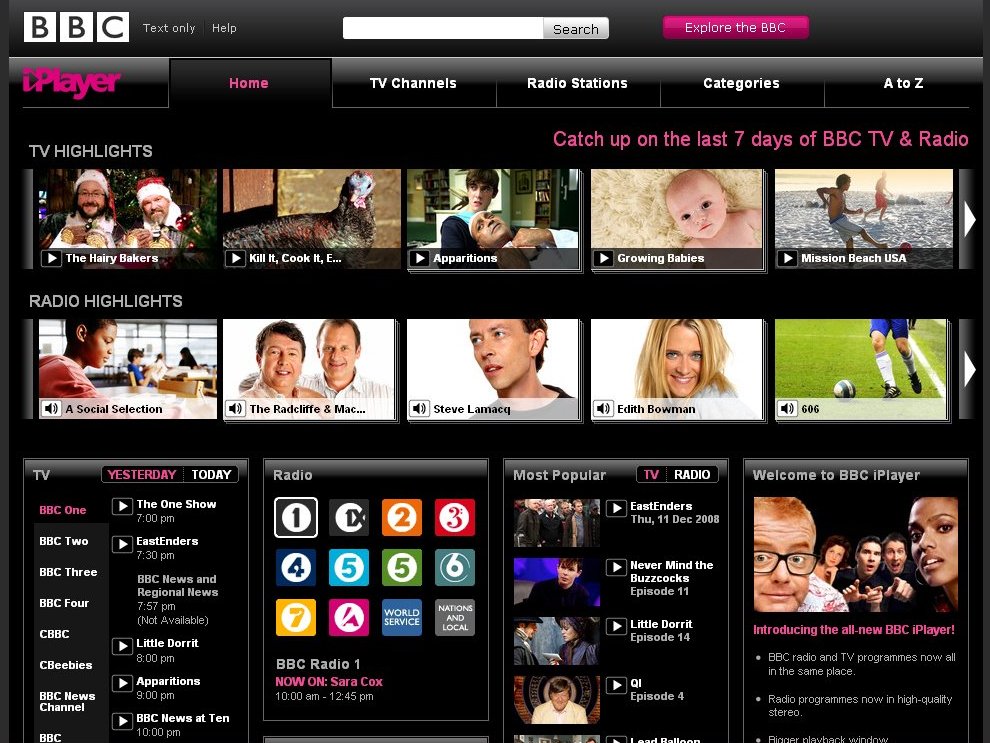
The Wii, PS3 and iPhone got iPlayer in 2008, but Microsoft's boneheaded "no free stuff for free users" policy meant the Xbox didn't get iPlayer until 2012 - although when it finally arrived, the BBC made sure it worked with Kinect.
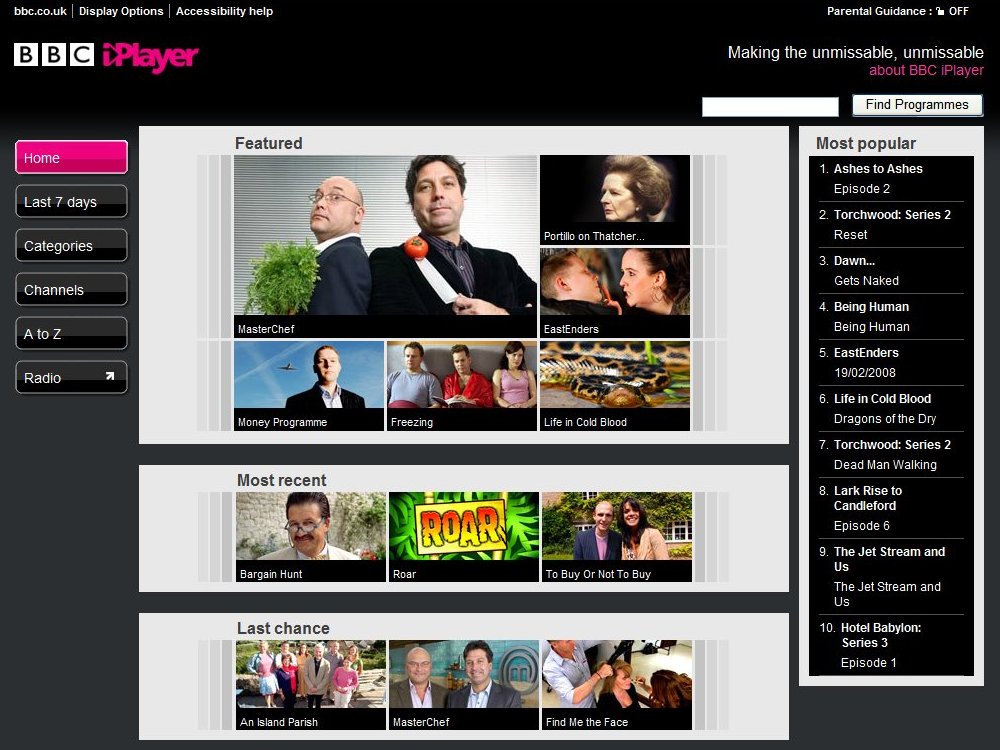
iPlayer came to Android in 2011, and in October of this year it completed the roll-out to the UK's major broadcasting systems when it arrived on Sky+ and YouView.
Sign up for breaking news, reviews, opinion, top tech deals, and more.
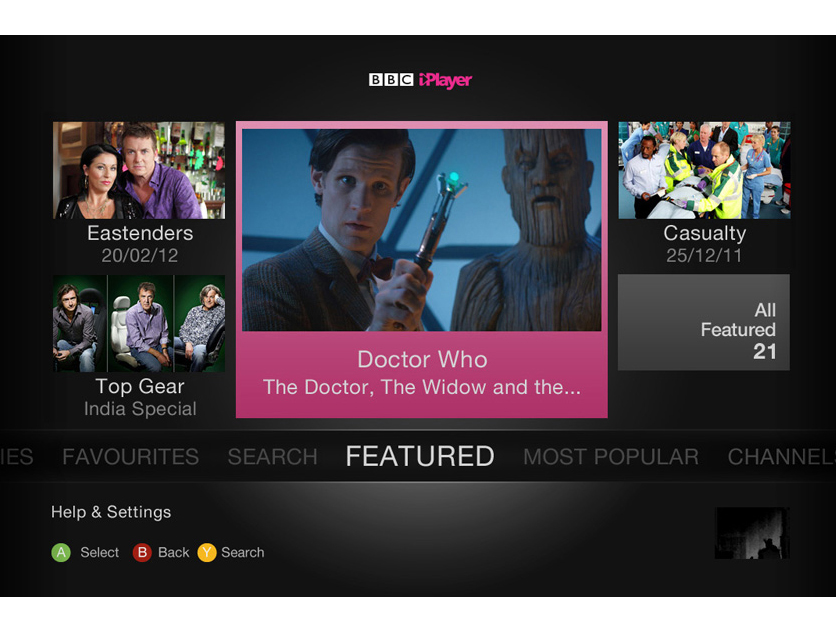
There were iPlayers for BlackBerries and for Sonys, for smart TVs and smartphones... if it had a screen, chances are you could watch iPlayer on it - although the April 1, 2009 story announcing a special iPlayer-enabled toaster with an integrated OLED display was, of course, a hoax.

As iPlayer embraced new devices, so did we: today, just 50% of iPlayer viewing is happening on computers, down from 65% the year before and 100% on day one. Some of those views are on TVs, of course, but around one-quarter of them are on tablet and phones.
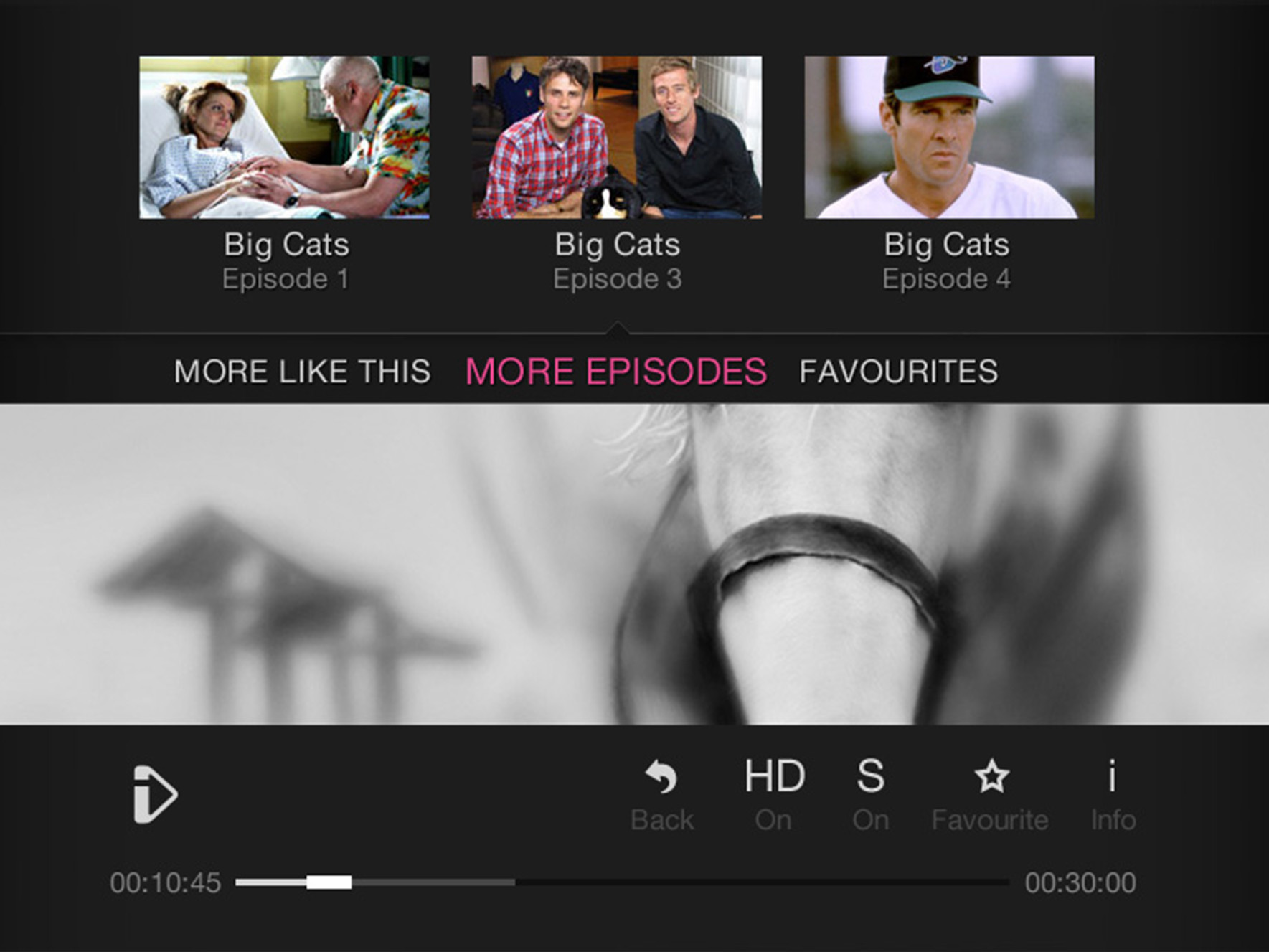
It hasn't all been plain sailing. Over the years the iPlayer has been plagued by everything from ISP throttling and anti-DRM protests to moaning commercial rivals, although as our Dan Grabham pointed out at the time, rivals really needed to make services that weren't rubbish instead of whingeing. Rupert Murdoch was particularly unhappy, claiming back in 2008 that iPlayer had "squashed other competition".
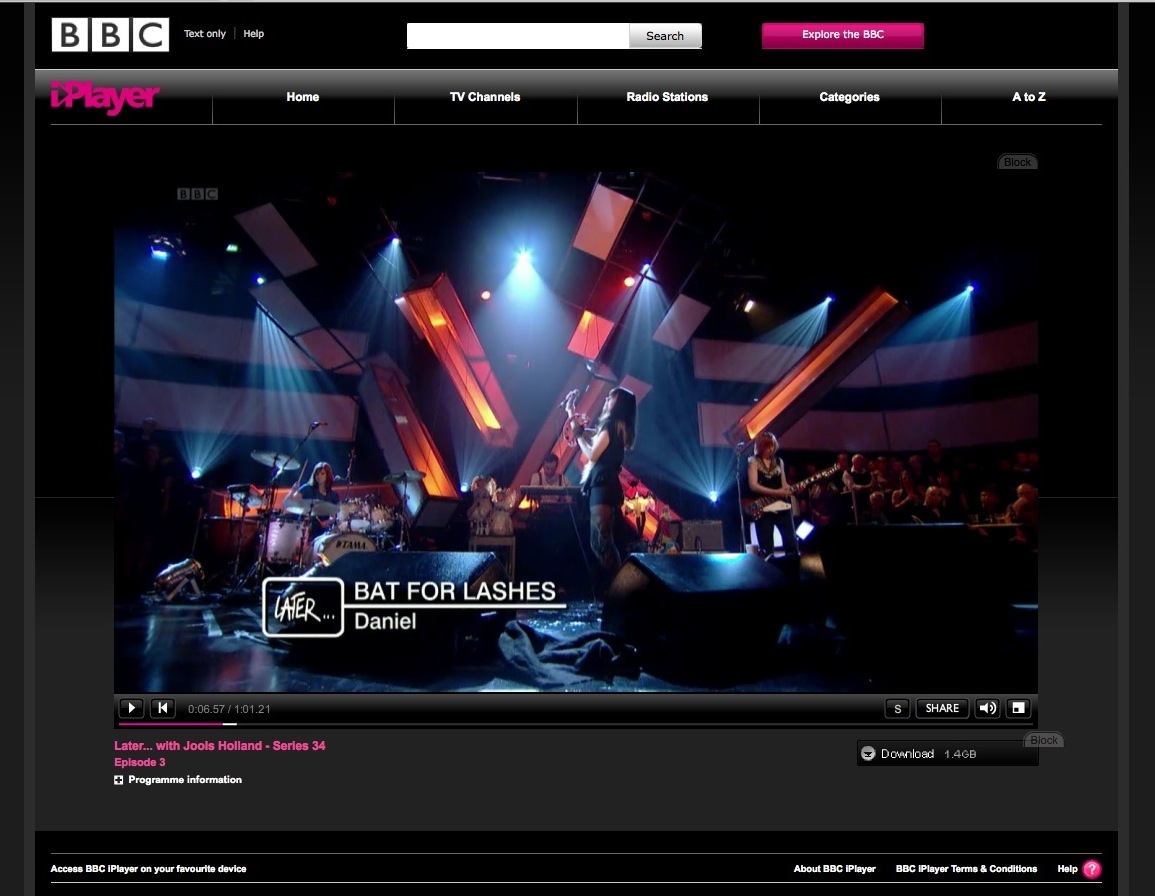
For a while, there was even talk of opening up iPlayer to other broadcasters, although the BBC Trust decided that that was a really terrible idea. Rivals did eventually raise their game, although plans for the BBC and commercial broadcasters to team up as one big happy family under the Project Kangaroo banner were crushed by the Competition Commission. It has, however, gone global:
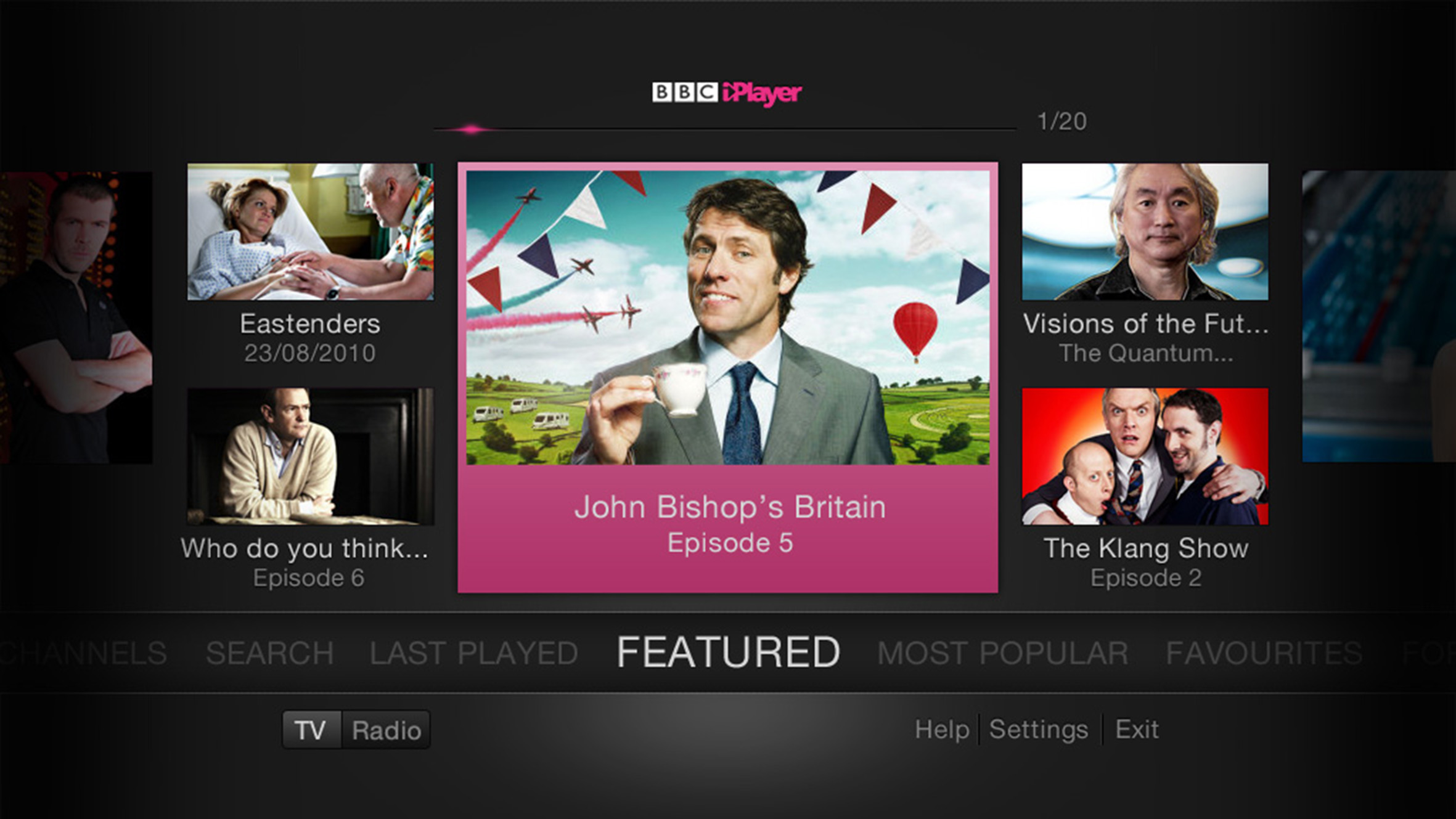
Rivals might not have liked it, but we all did: in 2010's TechRadar awards the iPlayer team walked away with two gongs - the most essential online innovation award, and the most innovative home entertainment platform award. Perhaps that was because it enabled everyone to watch World Cup matches when they were at work.
One of the reasons iPlayer is so well liked is because it keeps improving. In January, BBC policy and strategy director John Tate said that the BBC shouldn't rest on its iPlayer laurels, and it didn't: we got the ability to pause and resume live TV in June and mobile downloads in September.
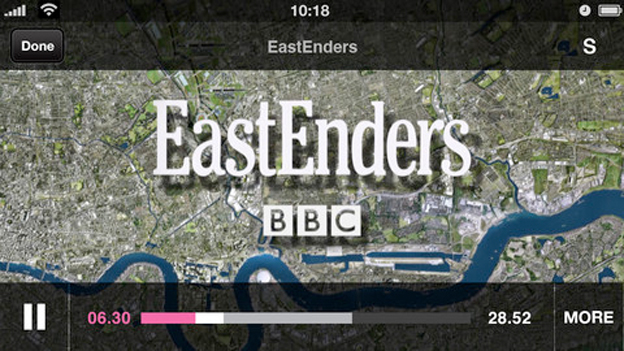
So what's next? According to iPlayer general manager Matthew Littleford, the aim is to avoid what happened to Kodak: instead of embracing digital photography, Kodak stuck with film and let competitors kill its business.
"We can set the iPlayer up for the future or resign it to obsolescence," Littleford said. "We are having the 'Kodak moment' right now; we don't want to come up with catch-up TV and then see everyone else overtake us." With iPlayer, it seems, we ain't seen nothing yet.
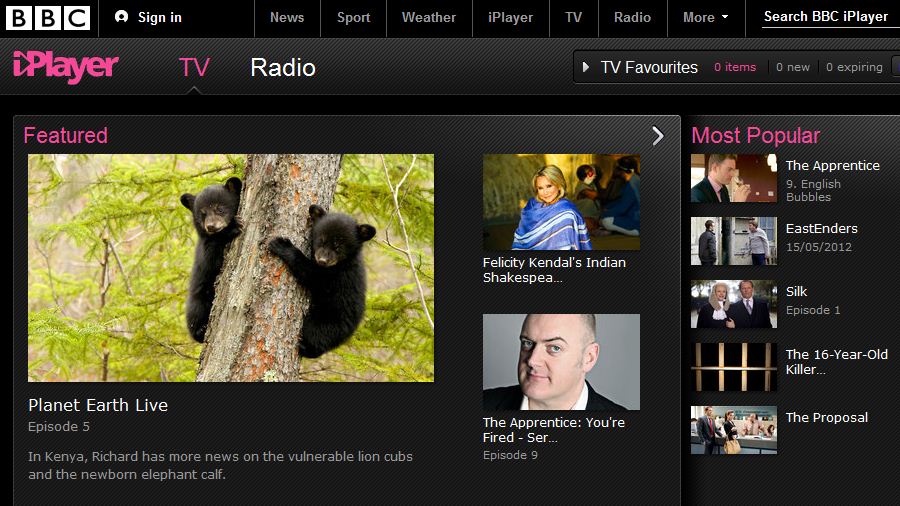

Contributor
Writer, broadcaster, musician and kitchen gadget obsessive Carrie Marshall has been writing about tech since 1998, contributing sage advice and odd opinions to all kinds of magazines and websites as well as writing more than twenty books. Her latest, a love letter to music titled Small Town Joy, is on sale now. She is the singer in spectacularly obscure Glaswegian rock band Unquiet Mind.